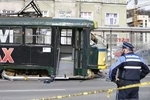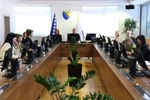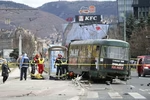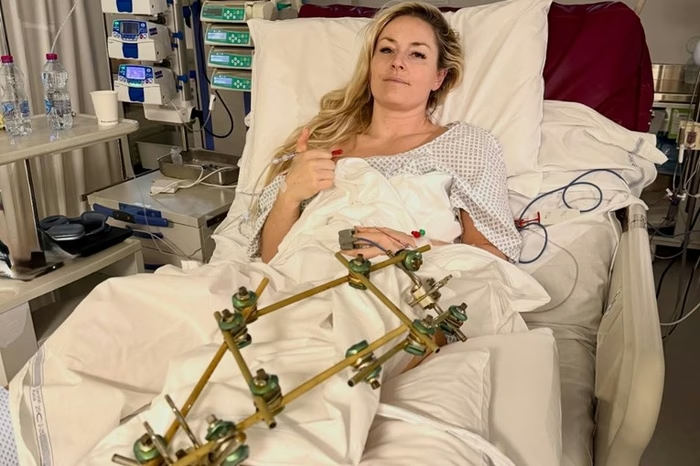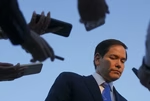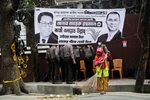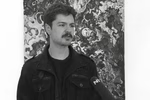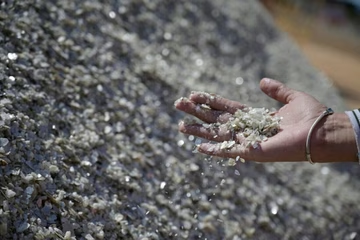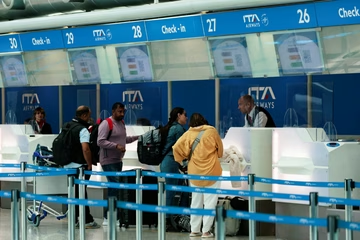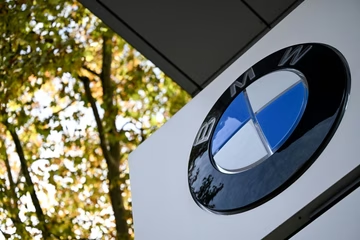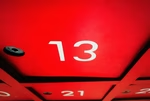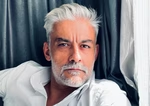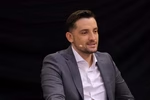Freddy Mutanguha reflects on Rwandan and Srebrenica genocides at Potocari memorial

Freddy Mutanguha, Executive Director of Aegis Trust and Director of the Kigali Genocide Memorial, survived the 1994 Rwandan genocide, where one million innocent people were killed. In Potocari, he recalled the events of 1994 and compared them to the genocide in Srebrenica.
Mutanguha explained that the preparation for the Rwandan genocide lasted about thirty years, during which discrimination was developed to divide the local population.
"I am a victim, a genocide survivor. In 1994, I lost my parents and four sisters. They were among our neighbors. That was the horrific moment when you find yourself as a victim. You lost your parents, grandfather, extended family—you lost everything. You lost your home, and your neighbors killed your family," Mutanguha emphasized.
He noted that it was particularly characteristic of Rwanda that neighbors killed neighbors.
"They turned against us. If you do not pay attention, this can lead to division and discrimination, turning your neighbors against you, making them killers. That happened in '94, and about a year later, genocide occurred in Srebrenica. The rest of the world simply didn't care about what was happening in Rwanda enough to protect civilians and prevent genocide from happening here in Srebrenica," Mutanguha reflected.
The UN recognized the Rwandan genocide as such and passed a resolution on the genocide in January 2018. Mutanguha expressed satisfaction that a resolution on the Srebrenica genocide was adopted in May this year.
"This is a significant step forward where the international community has recognized these crimes. As survivors of the genocides in Rwanda and Srebrenica, we want the international community to take another step to protect civilians worldwide and ensure this world is a just and good place to live. We hope the international community learns from these two crimes in our countries, despite the time gap. We have realized that the world does not learn enough about what is happening—about the hatred, discrimination, and divisions occurring worldwide. I am very pleased that the resolution has finally been adopted, and we hope that deniers, those who deny genocide, will be silenced because it will now be the responsibility of all states to remember genocide, prevent it, and provide the dignity that the victims deserve," he added.
Thirty years later, people in Rwanda are rebuilding the nation, the state itself, and working to improve relationships. Part of Rwanda's reconstruction and renewal included steps to ensure justice for survivors. Freddy Mutanguha had the opportunity to meet face-to-face with the person convicted of murdering his family.
"It was a very sad moment for me because it took me back to 1994. His name is Samson, and he was the leader of the militia that killed my family. When I came to see him, about five minutes before, it took me back 30 years, where I could even hear the killers' hate songs as they came to kill my family. However, my sister and I found the courage to move forward and shake hands with him. I wanted him to look me in the eye, to see that we are still alive and understand why he did it and what he feels when he looks at me. When we shook hands, when he approached me, he began to apologize, saying he was sorry. When I asked him why he did it, he had no answer," Mutanguha recalled.
Kakvo je tvoje mišljenje o ovome?
Učestvuj u diskusiji ili pročitaj komentare





 Srbija
Srbija
 Hrvatska
Hrvatska
 Slovenija
Slovenija













